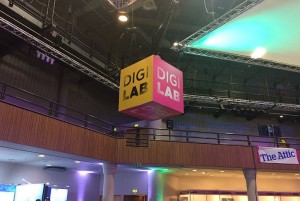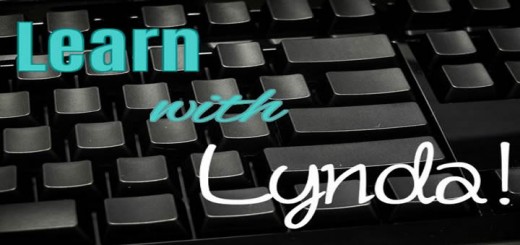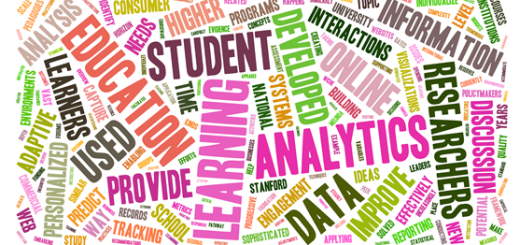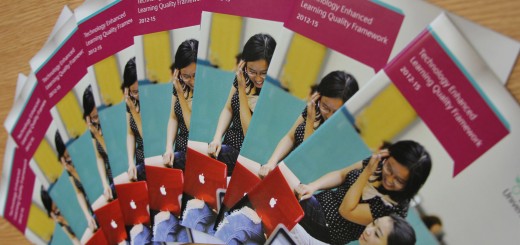#Digifest17 Part 2: Evidence-based TEL, Augmented Reality and Robots!
I’ve had to dedicate two blog posts to Digifest 2017, as I’ve had so much in my brain that I didn’t want to overwhelm people with one mammoth post! See my Part 1 post for my reflections on the learning analytics debate between Richard Palmer and Sheila MacNeill. In this post, I’m blogging about my reflections on the workshop on evidence-based TEL and on some of the technologies that were available to test out in the Digilab.
Evidence-based TEL
What is missing?
This workshop on evidence-based TEL with Professor Don Passey from Lancaster University and Melissa Highton from University of Edinburgh gave me lots of food for thought about how technology-enhanced learning research translates into practice and whether there’s more we could be doing (or not doing) in terms of TEL research. As a relative newcomer to the profession, I am keen to learn as much as possible about the research that’s already out there and perhaps conduct some myself in the future.
Don Passey has analysed the TEL research evidence and talked about the lessons we can take from it. He pointed out that there is plenty of evidence of the affordances of certain technologies, their uses through pedagogies and activities and the outcomes from said activities for teachers and learners. However, there is less evidence on the long-term impact on learning for learners. Don suggested that one of the main reasons for this is that the internal cognitive processes that take place for ‘deeper’ learning – the analysis, synthesis, understanding and conceptualising from Maslow’s hierarchy – are more difficult to measure and observe when conducting research. He also suggested that the context in which learning technologies are being used needs to be understood and that different learning perspectives – such as cognitive, motivational or social – need to be considered.
From his analysis, Don concluded that the evidence that seems to be lacking in the field of technology-enhanced learning includes:
- Impacts on long-term memorisation, social and societal aspects of learning.
- Uses, outcomes and impacts of project-based activities.
- Metacognitive outcomes and impacts of online learning support.
- Outcomes and impacts for specific groups of learners.
- How lifelong learning is being supported.
- How inter-generational learning is being supported.
Finding an evidence base for TEL – should we even try?
Melissa Highton started off her part of the session by asking a somewhat contentious question of whether we should even try to find an evidence-base for our decisions. Is ‘technology enhanced learning’ a red herring? Melissa then went on to discuss how different kinds of evidence will persuade different people in any given institution. Differences in disciplinary methods and whether academics believe the methodology in a field different to their own is rigorous enough could all have an impact on whether they will believe you when you share evidence from TEL research. We often also have to provide very different kinds of evidence to the budget-holders in our institutions in order to get decisions made on a particular institutional technology.
The evidence-base is not the same as the business-case
In Melissa’s experience, here are the things that work when it comes to TEL:
- Working with evidence
- Working with language
- Working with teachers
- Working with budget holders
- Working on a hunch
- Working from experience
Melissa argued that academic colleagues will, quite rightly, question us on our practice and that we should be able to explain things in as clear a way as possible. Working with the language around TEL is especially important for this. We also had some good discussion on our tables as part of this workshop and I enjoyed hearing from those in other sectors and from other universities on how and why they might use evidence to inform their practice.
Melissa has written some blog posts that carry on the same theme of the session from Digifest (linked below), and it is likely that I will reflect on some of these critical approaches to TEL over on my personal blog to use as part of my PCAP assessment later this year.
- In search for an evidence base for technology-enhanced learning [blog post]
- What does a TEL evidence base really tell? [blog post]
- Evidence-based practice in technology-enhanced learning [slides from the session]
Robots and AR
I got to have a play with some of the tech that was available at Digifest. I was really impressed by the Microsoft Hololens; an augmented reality headset that allows you to see a combination of the real world and the virtual world at the same time. The application I tested out immersed me in an Italian piazza and allowed me to move around and select things by ‘air tapping’ to find out more about particular buildings or items in the piazza. I preferred the ‘mixed reality’ aspect of the Hololens, because I could still see the environment around me and wasn’t in danger of walking into anything or falling over!
I also enjoyed meeting Pepper the Robot, from Softbank Robotics, especially when he did an impression of C3PO from Star Wars. Pepper was very popular and I would have liked to have spent more time ‘chatting’ with him. He is designed specifically to be a day-to-day companion and can perceive the principal human emotions. Some families in Japan have already ‘adopted’ one for their house. If he could be programmed to do the housework I would buy one tomorrow!
Overall, I really enjoyed Digifest and would definitely go back again. Huge thanks to Jisc for putting on a worthwhile event. The Digifest website has links to slides from sessions, video recordings from the two days and more information about the technologies that featured in the Digilab. The #digifest17 Twitter hashtag is also still very active, with people sharing their reflections and other videos and photos from the event. I can highly recommend giving it a look! Maybe we’ll see you there next year?
Rosie


